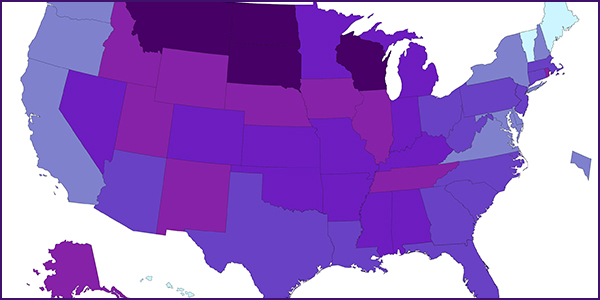The ongoing COVID-19 pandemic is forcing NERC and the regional entities to continue adapting their policies in hopes of helping utilities cope with the outbreak.
NERC announced on Thursday that the ERO Enterprise will once again delay the expiration of the coronavirus-inspired expansion to its self-logging program originally implemented in May. (See NERC Expands Self-logging During Pandemic.) Under NERC’s revised guidance, the policy — which was previously extended through December along with deferrals of on-site activities such as audits and certifications — will now continue through the end of March 2021. (See NERC Extends Self-logging, Deferments Through Dec.)
“In coordination with registered entities, the ERO Enterprise has had success throughout 2020 in coordinating remote virtual audits and other activities that were originally scheduled to be on-site in 2020,” NERC said in a statement. “The ERO Enterprise will return to on-site activities as it becomes safe to do so and in a manner that prioritizes risk.”
REs’ Remote Work Policies Extended
The extension to the self-logging program follows extensions to COVID-19 response measures from several REs. The Midwest Reliability Organization announced this week that it will continue its remote work policy through the end of the first quarter of 2021, and SPP said at the beginning of the month that it will delay opening its offices from Oct. 5 to Jan. 4, 2021.

U.S. COVID-19 cases per 100,000 residents reported in the last seven days by state/territory | CDC
No changes have been revealed for NERC’s office policy since the organization announced in August it would keep its offices in Atlanta and D.C. closed and have staff work from home through the end of the year. (See NERC Offices to Stay Closed Through December.) However, Elsa Prince, a principal adviser to NERC, told the Project Management and Oversight Subcommittee (PMOS) at its meeting on Wednesday that an update is expected at the Board of Trustees’ meeting in November.
Prince also confirmed that “there will be no in-person meetings with external stakeholders for the remainder of the year”; NERC had said such events would be considered on a case-by-case basis. Several high-profile events scheduled for this fall have already been called off, such as the Electricity Information Sharing and Analysis Center’s annual security-focused conference GridSecCon, which was scheduled for Oct. 20-23 but canceled in April. (See FERC Extends NERC Compliance Filing Deadline Again.)
The inaugural Electric Power Human Performance Improvement Symposium, a joint effort between the ERO Enterprise and the North American Transmission Forum, has also been delayed again, after a previous deferral from September to March 2021. NERC on Monday announced that organizers would seek “a more accommodating time in the future” for the conference, while “exploring potential methods to deliver content in the interim.”
Budget and Travel Uncertainty Persists

Some of the discussion at Wednesday’s PMOS meeting turned on the frustration felt by many participants at the way the pandemic’s uncertain time frame has made planning for next year difficult. In response to a question by Chair Charles Yeung about whether members would be able to attend public meetings if and when they resume next year, Masuncha Bussey of Duke Energy pointed out that for many entities, it is still too early to judge when travel policies and budgets can return to normal.
“As with every other company here in Charlotte, [N.C.,] people are [being laid] off,” Bussey said. “My company is having budget issues just like everyone else, so there’s no guarantee they’ll have the money for me to travel.”
Yeung acknowledged the difficulty, but he reminded participants that “there is a commitment … to attend” in-person meetings if NERC decides to return to normal operations. He urged members to “make it known to your finance folks” so the organization can begin to make plans.




